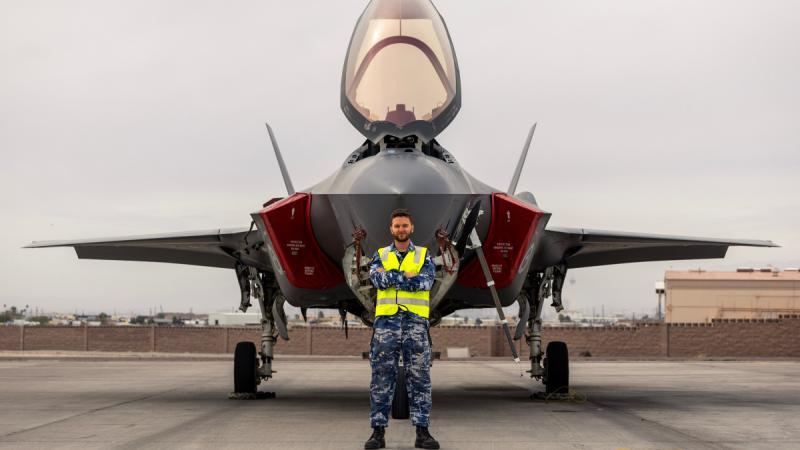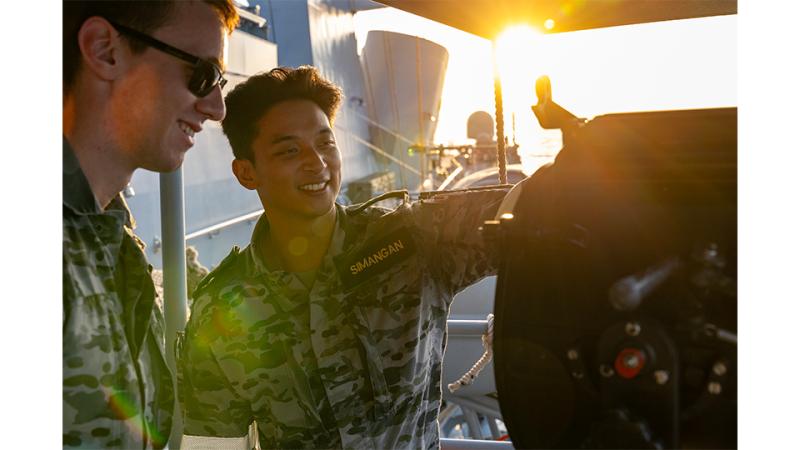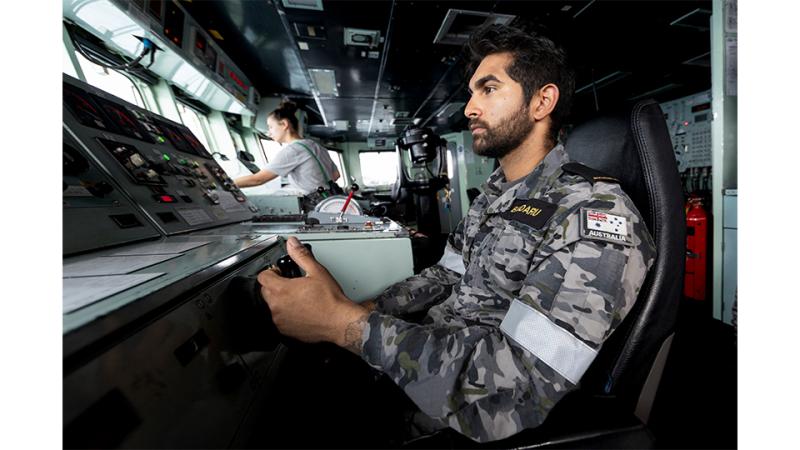10 July 2025
Combat engineers from five nations executed four major and two minor projects in eight weeks during Exercise Puk Puk in Papua New Guinea.
From playgrounds and carparks, to major building refurbishments and road construction, the contingent of 132 personnel comprised sappers from Townsville’s 3rd Combat Engineer Regiment (3CER), PNG, Britain, New Zealand and Japan.
Speaking in Lae, where the works were being carried out, Contingent Commander Major Liam Clarke, of 3CER, said the evolution had been impressive since he first participated in the annual exercise in 2016.
“Seeing Puk Puk evolve over the years, it's definitely had an increasing focus on construction and integration, but this year the scope, scale and complexity of the work has increased significantly too,” Major Clarke said.
“We've also seen more interest from international partners and I think that's a positive reflection of the great work that Puk Puk does.”
Second-in-Command (2IC) Captain Cyril Gerari, of the PNG Defence Force, said the opportunity to be 2IC for an international contingent was a great challenge to further develop his leadership.
“Being in charge of not only my team but the whole contingent with ADF, New Zealand, UK and Japan, it's big for me as a leader; a challenge and very good experience,” Captain Gerari said.
He said Puk Puk developed skills and knowledge, building a foundation to ensure soldiers were ready to work together in any environment.
“It's always nice having our brothers here, and apart from building the friendship, we have the opportunity to exchange skills and knowledge,” Captain Gerari said.
“That’s important because we live in this Pacific region and we might depend on each other in an emergency or disaster, so this exercise sets a platform for us to work together quickly if something like that happens, because we already have that integration.”
'We know that those soldiers are going to use the infrastructure that we build, and it's going to have a lasting impact.'
The term ‘integration’ is not used lightly, with the visiting soldiers embracing PNG culture, and everyone learning one another’s language.
“Everybody's speaking Tok Pisin now. It’s very good to see that bond, and if there's one thing we pride ourselves on, it’s our culture,” Captain Gerari said.
“So seeing our brothers speaking in our language, that brings a lot of pride.”
Major Clarke said Puk Puk delivered tangible and lasting effects.
“Getting 130 people from five countries, and equipment, to Lae to execute this scale of work is hard, but when you can do that with a group of motivated people who’ve never worked together before, it’s really rewarding and that’s what makes Puk Puk different,” he said.
“The work that we do leaves a lasting impact. The buildings and the relationships that we make and the skills that we learn, it’s all real. That’s what I find rewarding, and the soldiers see that too.”
Major Clarke said what was left behind was not just infrastructure, but a legacy and bond that would endure for years to come.
“We know that those soldiers are going to use the infrastructure that we build, and it's going to have a lasting impact. I see that when I look at some of the work we did here in 2016 and it's still in use. It's being looked after and still being appreciated by the engineer battalion,” he said.
“We know we're leaving it better than we found it for our partners in the PNGDF Engineer Battalion, and that's important to us because they’re our brother battalion.”


